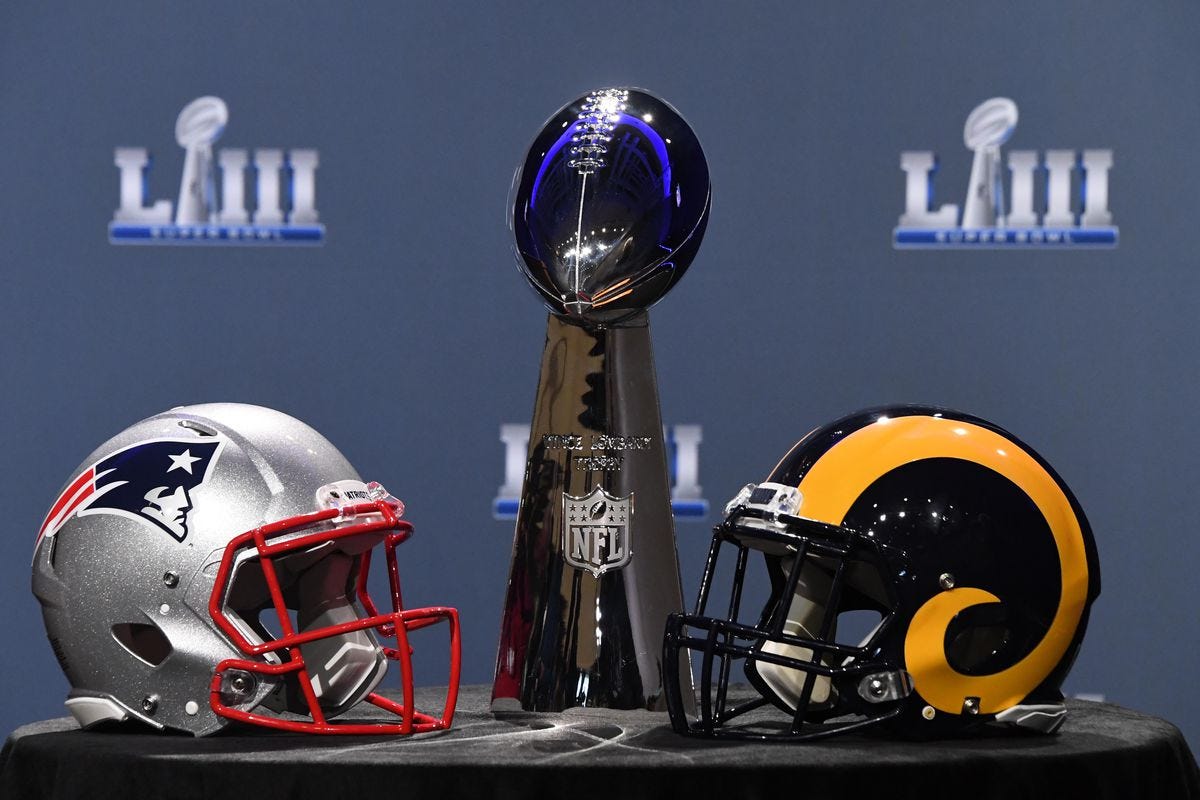Just Another Football Game?
Tell That to Someone Who Loves It
With over a hundred million sets of eyes making up its viewership, one could argue that the Super Bowl wins the Lombardi Trophy as the sports event champion of commercialization. But is there more to the spectacle than meets the eyes?
In his book, Desiring the Kingdom (as well as its more user-friendly version, You Are What You Love), Calvin College professor James K.A. Smith has written much about the significance of modern cultural liturgies, including those of professional American football.
In his commentary for The Washington Post in 2017, Smith wrote about the “spectacular display of America's ‘God and country’ obsession,” identifying so many of the liturgies within a game of the National Football League (NFL) for what they truly are: worship.
I recalled Smith's observations last night while watching the second half of the Super Bowl. In the cathedral of Atlanta's Mercedes-Benz Stadium, the devoted disciples practiced their faith, with all the sights and rites, smells and bells of a worldwide religion.
There were signs, symbols, and sacraments that all had their place in this praise of the pigskin. Historical narratives—incorporating heroes of the past and the miracles they performed—were told and retold in an oral tradition of talent's tale.
The pre-game and halftime shows set the stage for the eventual procession of the Lombardi Trophy through rows of parishioners to the altar, as carried by its priests, Vince Wilfork, Emmitt Smith (note the sacramental gloves), and Joe Namath.
After a brief presentation from Roger Goodell, Nuncio of the NFL, the evening finally culminated in the communion of the saints (minus the Saints), with the Brady one himself taking his place as the Greatest Of All Time (GOAT) as prophesied:
“The GOAT charged furiously at the ram and struck him, breaking off both his horns. Now the ram was helpless, and the GOAT knocked him down and trampled him. No one could rescue the ram from the GOAT's power." (Daniel 8:7, NLT)
Okay, okay, so the Scripture reference to Brady is definitely tongue-in-cheek, but it's not hard to see the elements of worship in the rest, is it? Some critics might suggest a “reading into” of these elements that just happen to make up the biggest game of the year, but two questions we should ask are: 1) Why do these elements happen to make up the biggest game of the year? and 2) What does that mean?
Even as we consider the NFL and those who worship at its altar on Sundays, we need to go deeper in understanding our own loves as well, learning to rightly evaluate and order them as St. Augustine exhorts us to do:
“...living a just and holy life requires one to be capable of an objective and impartial evaluation of things: to love things, that is to say, in the right order, so that you do not love what is not to be loved, or fail to love what is to be loved, or have a greater love for what should be loved less, or an equal love for things that should be loved less or more, or a lesser or greater love for things that should be loved equally." (On Christian Doctrine, I.27-28)
This requires thinking differently. As Smith wrote in You Are What You Love,
“What if, instead of starting from the assumption that human beings are thinking things, we started from the conviction that human beings are first and foremost lovers? What if you are defined not by what you know but by what you desire?" (pg. 7)
The Super Bowl as just another football game?
Tell that to someone who loves it.


